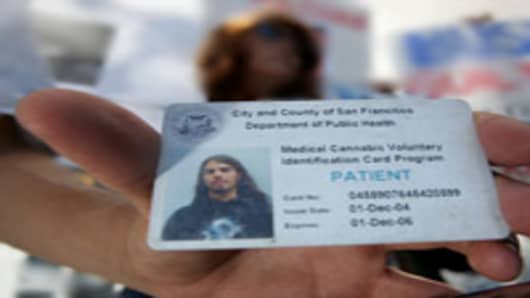If you are a legal medical marijuana patient on the East Coast, getting your hands on your medicine could be a matter of life or death.
"We have had patients that have been held up at gun point, robbed and scared to death when trying to get their medicine," says Joanne Leppanen, asssociate director of the Rhode Island Patient Advocacy Coalition, a group representing the interests of patients and caretakers. "We even had a patient trying to buy medicine when a raid happened."
While four states in the East have legalized medical marijuana (Maine, Vermont, Rhode Islandand New Jersey), none have an accompanying distribution system, like dispensaries, leaving patients on their own as to how to get their marijuana.
“Patients will say, 'Hey I have this card, is it going to help me?' What can we tell them? They can feel very defeated knowing something is out there that can help them, but having no access,” says Leppanen. "It’s heartbreaking because they are no realistic options.”
The situation may soon improve. Three of the four states (Maine, Rhode Island and New Jersey) have recently passed legislation to establish state-licensed institutions that will sell medical marijuana to qualifying patients.
That said, however, these marijuana vendors won’t be anywhere near as sophisticated as the pot retailers in Coloradoor California, where both dispensaries and profits are plentiful. (Rounding out the 14 states where the practice is legal are Oregon, Washington, Montana, Nevada, New Mexico, Michigan, Hawaiiand Alaska.)
In fact, the East Coast outlets won’t even be called "dispensaries," but "compassion centers," or "alternative treatment centers" and will be not-for-profit organizations.




